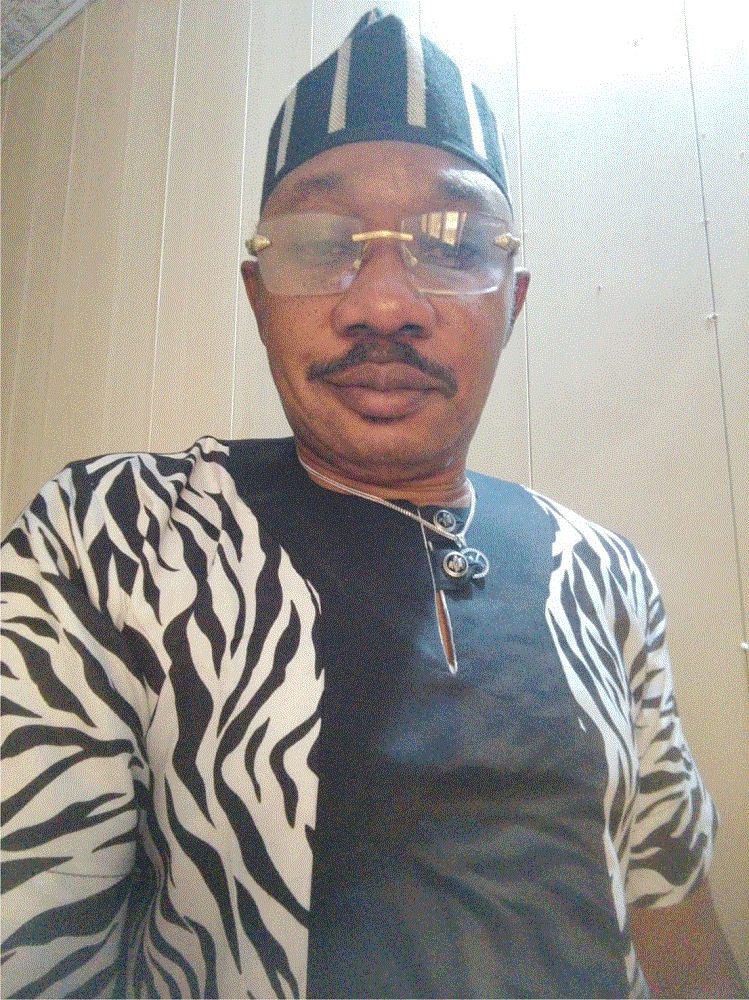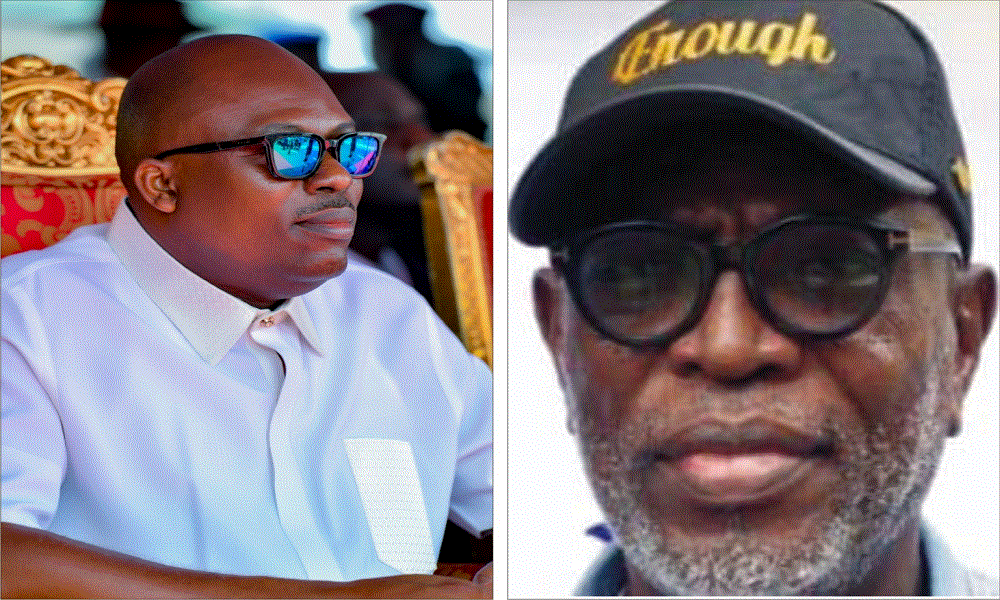EU, US Warn Police, DSS, Others On 2019 Elections
The European Union Delegation to Nigeria and the United States of America have called on Nigeria’s security agencies to avoid actions that could jeopardise the success of next year’s general election.The warning came as campaigns for the polls officially began yesterday.
“We wish to draw particular attention to the fundamental role of the security agencies in providing a safe and secure environment for the Nigerian people to exercise their democratic rights. It is vital that security agencies act, and are seen to act, in an impartial manner that maintains the high standards of professional conduct,” said a joint statement issued in Abuja yesterday.
The Delegation and the United States said they were “gravely concerned over widespread incidents of intimidation, interference and vote buying during the recent gubernatorial elections. We were also perturbed by irregularities and violence during party primaries.” They also expressed desire for “greater participation of women, youth and people living with disabilities.”
The statement was jointly signed by various countries with missions in Nigeria including, France, Germany, United Kingdom, Australia and Austria. Others are: Bulgaria, Canada, Czech Republic, Denmark, Finland, Greece, Hungary, Ireland, Italy, Japan, Netherlands, Norway, Portugal, Republic of Korea, Romania, Slovakia, Spain and Sweden.
“We reiterate the importance of the Independent National Electoral Commission (INEC) as it fulfills its constitutional role. INEC must be allowed to operate free from outside pressure and intimidation, and in turn, must demonstrate full neutrality and professionalism. We encourage that adequate funding is swiftly facilitated for INEC and supporting institutions, and we hope to see the entry into force of improvements to the Electoral Act as soon as possible,” the statement added.
Back home, stakeholders at the Nigerian Satire Festival at the weekend in Abuja also tasked INEC to ensure credible polls. Speaking at the event, a former chairman of the National Electricity Regulation Commission (NERC), Sam Amadi, regretted: “The primary elections this year were nothing to write home about. There was no fairness and civility. There was no accountability. INEC has refused to use rules to shape behaviour and therefore it should be reorganised.”
The executive director of Centre for Transparency Advocacy, Chima Amadi, however admitted there has been improvement in INEC’s conduct of elections. “If you look at the value chain of our electoral process, the umpire we inherited in 1999 is not the same in terms of institutional duties that you have in 2018. INEC has improved. This made politicians to resort to vote buying because people have become impoverished. Unfortunately, there is not much INEC can do,” he explained.
But three months to the election, the Islamic Movement of Nigeria (IMN) has stirred the political waters, vowing its 8 million-strong prospective voters would cast their ballots against the re-election of President Muhammadu Buhari because of the “victimization of our group and continued incarceration of our leader, Sheikh Ibrahim El-Zakzaky.”
Many IMN members have been killed in confrontation with security agencies, the most recent being the October clashes in Abuja. According to the head of IMN Resource Forum, Muhammed Ibrahim Gamawa, “We will never be comfortable with the All Progressives Congress (APC) and President Buhari. Our sect will be voting on election day and certainly we will not vote Buhari.”
On why the group was taking the position, he said: “He (Buhari) killed us. Do you want him to come back and kill us the more? We are not comfortable with Buhari. We will vote for whoever we feel will protect our rights. We will vote for someone who will keep us alive and respect our rights to worship.”Gamawa made the disclosure when he led key officials of the sect on a courtesy visit to the Abuja Bureau of The Guardian.
While APC spokesman Lanre Issa-Onilu declined to comment, a source within the party said a way would be found around the threat, adding: “The president would be re-elected because of his good works.” But reaffirming the protest against the Buhari administration, a political support group, Coalition of Saraki Advocates for Atiku (COSAA), claimed the president failed to turn Nigeria around because he surrounded himself with corrupt politicians.
The group said it has begun mobilising voters across the country and would boost the chances of Peoples Democratic Party (PDP) presidential candidate, Atiku Abubakar, with 36 million votes.“We are not saying Buhari should not fight corruption but he should not be selective. The time to send away APC is 2019. This should serve as a lesson that whoever fails the people by reneging on his promises would be booted out of office,” said the group’s southwest coordinator, Oba Adelusi, in Ado Ekiti, at the weekend.
The Taraba chapter of Project Save Atiku also disclosed its readiness to frustrate triumph for the APC and the United Democratic Party (UDP) in the state. Coordinator, Luka Agbu Junior, told reporters in Jalingo that Nigerians have lost confidence in the current administration. He added that the group has toured the 16 local government areas of the state and would deliver every ward to the PDP.
In preparation for the polls, the PDP urged its candidates to embrace issues-based campaigns, promote the party’s ideals, and eschew violence and acts that may heat up the polity.“We enjoin all our members, leaders, faithful and supporters to display the highest levels and examples of party discipline, decency, tolerance and be on their best behaviour, to ensure that we all embrace a credible and satisfactory campaign that will shame our detractors,” said a statement by Delta State publicity secretary Ifeanyi Michael Osuoza.
Buhari meanwhile has appealed to Nigerians to give him another chance to consolidate his administration’s achievements. “If Nigerians graciously give us a second term, the next four years will be quite significant for our country,” he said.He spoke at an event organised by the office of Vice President Yemi Osinbajo, last night, to showcase the accomplishments of the administration since May 2015 and launch of the Next Level policy document.
The event, held at the Old Banquet Hall of the Presidential Villa, Abuja, was attended by high profile dignitaries including members of the Federal Executive Council, Secretary to the Government of the Federation (SGF), state governors and All Progressives Congress (APC) party faithful.
Buhari noted that the country was “faced with a choice to keep building a new Nigeria; making a break from its tainted past which favoured an opportunistic few. Our choices will shape us, our economic security, and our future prosperity.” According to him, “Nigeria, more than ever before, needs a stable and people-focused government to move the country forward.”
On corruption, he said: “We are committed to deepening the work we started this first term such that the nation’s assets and resources continue to be organised and utilised to do good for the common man.”
This was as Atiku, in a policy document released yesterday said he would create 3 million jobs yearly if he is elected.“Close to 16 million people are now unemployed, nine million more than in 2014. Over 2 million new entrants join the labour force each year, meaning the unemployed share of the labour force more than tripled in less than a decade: from 5.1 per cent in 2010 to 18.8 per cent in 2017. Unemployment for women and young people is at 33 per cent, 70 per cent of unemployed youths are uneducated and unskilled. Creating jobs and economic opportunities for these people will be vital both for reducing the pool of easy recruits for violent groups and reducing underlying grievances that feed the conflict.”
On how the jobs would be created, Atiku said his administration will “launch a new, more efficient, cost-effective and sustainable national entrepreneurship development and job creation programme.” It will also “target the creation of up to three million self and wage-paying employment opportunities in the private sector annually.”
Other ways for creating the jobs according to Atiku are: “Target all categories of youth, including graduates, early school leavers as well as the massive numbers of uneducated youth who are currently not in schools, employment or training. Create incubation centres, clusters and industrial/commercial hubs to provide a market place for MSMEs and SMPs. Champion the repositioning and streamlining of the activities of the existing federal and state government job creation agencies.”
He also listed three other areas of priority namely: infrastructure development, human capital development and poverty eradication. The former vice president also disclosed a plan to lift 50 million Nigerians out of poverty by 2025.
Atiku said he would privatise the Nigerian National Petroleum Corporation (NNPC) and sell all four national refineries. He would also raise Nigeria’s gross domestic product (GDP) by almost 90 per cent to $900 billion by 2025.
“The state’s critical policy priority is to build a broad-based, dynamic and competitive economy with a GDP of $900 billion by 2025,” the policy document reads.The former vice president also promised to raise foreign direct investment (FDI) to 2.5 per cent of the GDP.


